CUV vs SUV: 1 Hidden Difference Revealed!
In the world of automobiles, Crossover Utility Vehicles (CUVs) and Sport Utility Vehicles (SUVs) have gained significant popularity.
These vehicle types offer a blend of practicality, comfort, and performance that appeals to many consumers.
However, understanding the differences between CUV vs SUV can be a bit tricky.
This article aims to provide a comprehensive guide to help you distinguish between these two vehicle types and make an informed choice based on your needs and preferences.
Table of Contents
Construction and Design
SUV: Body-on-frame chassis
Sport Utility Vehicle (SUV) is constructed using a body-on-frame design, where the body and frame are separate entities.
This construction style is commonly found in pickup truck and provides high ruggedness and durability.
These characteristics make SUVs ideal for off-road capabilities and towing.
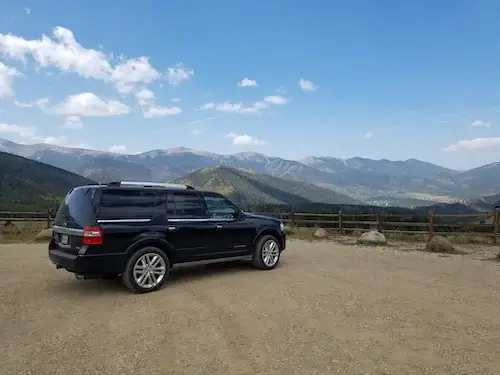
The body-on-frame construction can withstand harsh conditions and rough terrains, making it a suitable vehicle for outdoor adventures.
This design also provides a higher towing capacity, which benefits those who need to haul heavy loads.
The separate body and frame also mean that any damage to the vehicle’s body does not directly impact the frame, making repairs easier and potentially less costly.
CUV: Unibody construction on a car chassis
Crossover Utility Vehicle (CUVs), on the other hand, are built using unibody construction. This design integrates the body-on-frame configuration into a single piece.
This construction style offers a more car-like driving experience and better fuel efficiency and handling than body-on-frame vehicles.
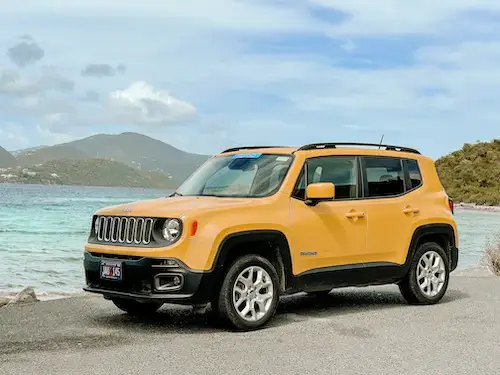
The unibody design makes CUVs lighter and more maneuverable in urban environments, making them a popular choice for city dwellers.
The integrated body and frame contribute to a smoother and quieter ride, as fewer parts can vibrate and create noise.
However, while unibody vehicles are generally more fuel-efficient and provide better handling, they may not be as capable in off-road conditions or for heavy-duty towing as body-on-frame vehicles.
Key Differences
Size and Dimensions
The core difference is that SUVs use a truck-based, body-on-frame design, while CUVs (crossovers) have a car-based, unibody construction.
Sport Utility Vehicle
SUVs are generally larger, with more interior space and cargo capacity, making them ideal for families and outdoor enthusiasts.
They are also preferred by individuals who need ample cargo space and towing capabilities, such as for SUV camping.

The larger size of SUVs not only provides more space for passengers but also allows for more cargo room.
This makes them ideal for large families, outdoor enthusiasts, or anyone transporting large items or looking to handle rough terrain.
For instance, the Ford Expedition is one of the largest in its class, offering seating for up to eight people and plenty of trunk space.
Crossover Utility Vehicle
Crossover SUVs, on the other hand, are more compact like passenger cars and easier to maneuver in urban environments.
They are suited for urban dwellers and small families, prioritizing comfort, fuel efficiency (hybrid and electric SUVs), and maneuverability.
Despite their smaller size, compact SUVs do not compromise on comfort and luxury. They offer ample space for passengers and cargo, making them a practical choice for small families or city dwellers.
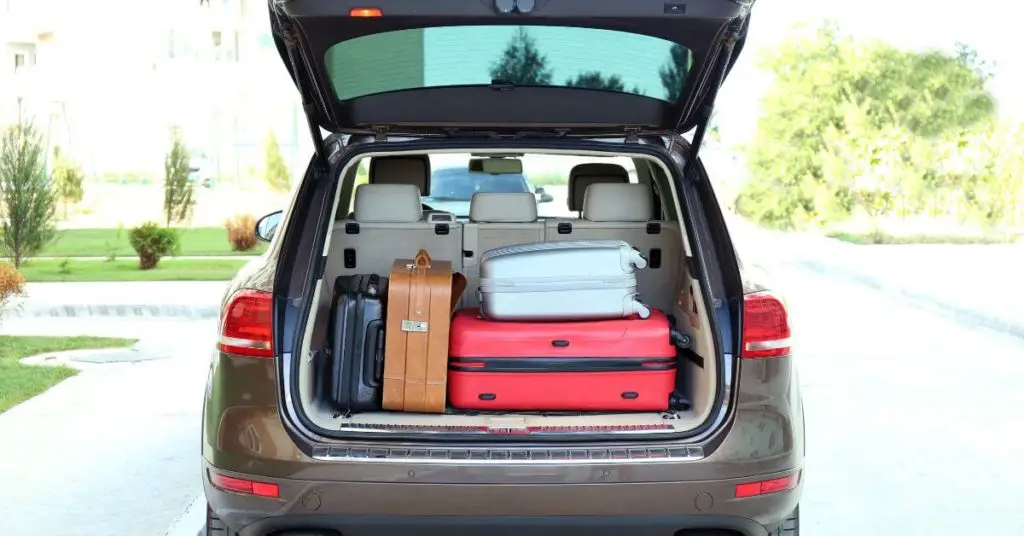
Their compact size makes them easier to handle and maneuver, especially in tight city streets or crowded parking lots.
For example, the Ford Escape is a compact SUV with a comfortable and spacious interior, a smooth and quiet ride, and excellent safety ratings.
Off-Road Capabilities
SUVs are designed for off-road adventures with higher ground clearance and specialized features.
They are ideal for outdoor enthusiasts and those with adventurous lifestyles. On the other hand, CUVs have limited off-road capabilities and are more suitable for on-road driving.
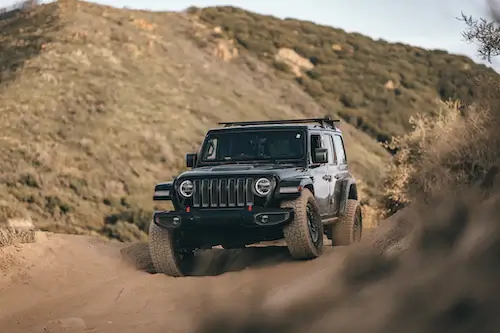
They are perfect for daily commuting and city driving.
Fuel Efficiency
CUVs typically have better fuel efficiency due to their lighter weight and more aerodynamic design. SUVs consume more fuel due to their larger size and heavier weight.
Snow and Ice Driving
SUVs are often better equipped for snow and ice due to their higher ground clearance and all-wheel or four-wheel drive systems.
Some of the best SUVs for snow and ice driving in 2023 include the Subaru Outback, Ford Expedition, Toyota RAV4 Hybrid, Mazda CX-9, and Kia Telluride.
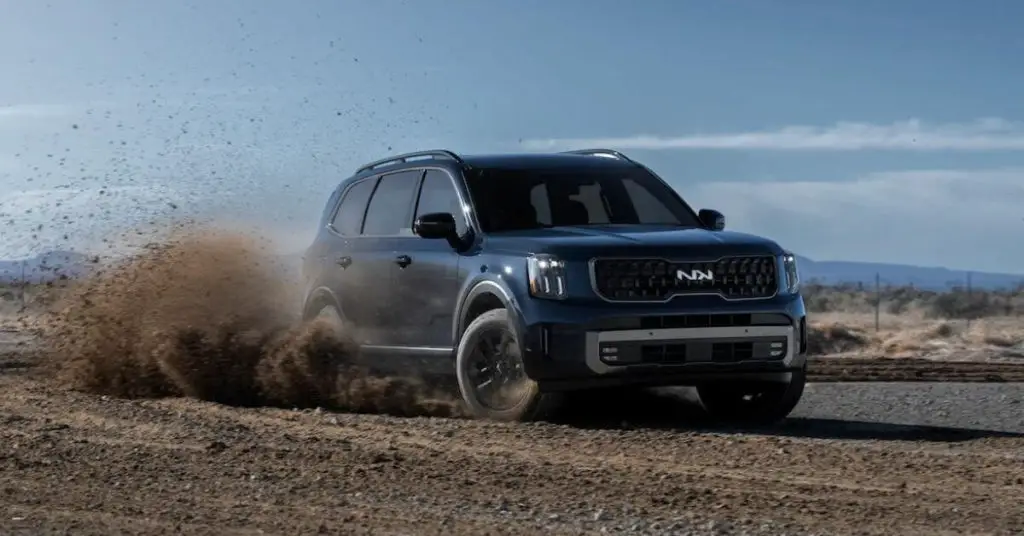
These vehicles offer all-wheel drive, high ground clearance, and advanced safety features that enhance their performance in snowy and icy conditions.
However, the choice between an AWD and 4WD system depends on factors such as how often you encounter snow and ice, the weather conditions, and what kind of roads you drive on.
Safety Features
Modern SUVs and CUVs have various safety features to help prevent accidents and injuries in snow and winter weather.
These include Anti-Lock Braking System (ABS), Electronic Brakeforce Distribution (EBD), Electronic Stability Control (ESC), Lane Keeping Assist (LKA), Blind Spot Monitoring (BSM), Forward Collision Warning (FCW), and Automatic Emergency Braking (AEB).
These features can significantly enhance the vehicle’s safety and performance in snowy or icy conditions.
SUVs vs. CUVs: Matching Vehicle Types to User Needs
Who’s a sport utility vehicle for?
SUVs are preferred by individuals who need ample cargo space and towing capabilities. They are ideal for outdoor enthusiasts, families, and those with adventurous lifestyles.
For instance, some SUVs are equipped with remote start technology, which adds to their convenience and luxury.
This technology allows drivers to start their cars from a distance using a key fob or smartphone app, warming the car on cold winter mornings without stepping outside into the freezing temperatures.
It also has safety benefits, such as reducing exposure time in dark parking lots and preventing motor wear and tear by allowing the car to warm up before driving.
Who’s a crossover utility vehicle for?
CUVs are suited for urban dwellers and small families, prioritizing comfort, fuel efficiency, and maneuverability. They are suitable for daily commuting and city driving.
Some CUVs are known for their quiet ride, such as those listed in this guide to the quietest SUVs. A quiet cabin lets you enjoy your music, podcasts, and phone calls without annoying noise.
It also reduces stress, fatigue, and distraction on the road. Read more about Quietest SUVs
Considerations for Choosing Between CUV vs SUV
Lifestyle and Needs:
Consider your lifestyle and needs when choosing between a CUV vs SUV. Assess whether off-road capabilities, towing, or cargo space are important to you.
Also, consider the environment you’ll drive most often (urban, suburban, rural). For example, seniors might have specific requirements when choosing an SUV, as this guide outlines.
Fuel Efficiency and Cost:
Consider the long-term fuel expenses and budget. Evaluate the initial purchase price and maintenance costs.
Remember, SUVs consume more fuel due to their larger size and heavier weight.
Noise Level:
If you value a quiet ride, consider looking for an SUV with noise cancellation, acoustic glass, suspension upgrades, sound-resistant mats, and triple door seals.
These features block unwanted noise from the engine, wind, road noise, and tire noise.
Some of the quietest SUVs in different categories include the Mazda CX-5 (compact), Volvo XC90 (mid-sized), Cadillac Escalade (full-sized), Mercedes-Benz GLS (luxury), and Tesla Model X (electric).
Electric vs. Gas-Powered:
Electric SUVs offer environmental benefits, low maintenance costs, and impressive performance. As they run on electricity, they provide a quiet driving experience.
Some of the quietest electric SUVs include the Tesla Model X, Audi E-Tron, and Ford Mustang Mach-E.
According to multiple sources, the quietest SUV on the market is the Cadillac Escalade, known for its exceptionally quiet cabin featuring advanced noise reduction technologies such as Bose Active Noise Cancellation, triple-sealed doors, and adaptive air suspension.
What does CUV stand for?
CUV stands for Crossover Utility Vehicle. It is a type of vehicle that combines the features of an SUV and a hatchback.
CUVs are designed and built using the “unibody” construction typically found in passenger cars, which offers a more car-like driving experience with better fuel efficiency and handling.
Is a RAV4 a SUV or CUV?
The Toyota RAV4 is considered a CUV. It is built on a car platform and modified with a raised ride height, providing a more car-like driving experience.
Despite its compact size, the RAV4 offers ample cargo space and advanced safety features, making it a popular choice among urban dwellers and small families.
What are examples of a CUV?
Examples of CUVs include the Toyota RAV4, Honda CR-V, and Ford Escape.
These vehicles are known for their compact size, better fuel efficiency, and car-like driving experience.
They are more suitable for on-road driving and are perfect for daily commuting and city driving.
What are the advantages of CUV?
CUVs offer several advantages. They typically have better fuel efficiency due to their lighter weight and more aerodynamic design.
They also offer a more car-like driving experience with better handling, making them easier to maneuver in urban environments.
Additionally, CUVs are generally more affordable than SUVs regarding the initial purchase price and maintenance costs.
What is the difference between a CUV and an SUV?
The key difference between a CUV vs SUV lies in their construction and design.
SUVs are built on a truck chassis with body-on-frame construction, providing ruggedness and off-road capabilities.
CUVs, on the other hand, are constructed on a car chassis with a unibody design, offering a more comfortable and fuel-efficient driving experience.
Are CUVs safer than SUVs?
Safety depends more on the specific make and model of the vehicle rather than whether it’s a CUV vs SUV. CUVs and SUVs come with various safety features.
Including advanced driver-assistance systems. However, due to their lower center of gravity, CUVs generally have less rollover risk than SUVs.
Are CUVs good for long drives?
Yes, CUVs are good for long drives. They offer a comfortable, car-like driving experience, and their better fuel efficiency can make long trips more economical.
Additionally, many CUVs have advanced comfort and convenience features that can make long drives more enjoyable.
Do CUVs have 4WD?
While not all CUVs come with 4WD, many offer it as an option. 4WD can enhance a vehicle’s performance in challenging driving conditions like snow, ice, or off-road terrain. If 4WD is your priority, check whether it’s available when choosing a CUV.
Final Thoughts and Key Takeaways: CUV vs SUV
In the world of automobiles, CUVs and SUVs hold significant positions, each catering to different needs and preferences.
With their body-on-frame construction, SUVs are larger, more rugged, and designed for off-road adventures.
They offer ample cargo space and towing capabilities, making them a favorite among outdoor enthusiasts and large families.
CUVs, on the other hand, with their unibody construction, provide a more car-like driving experience.
They are known for their better fuel efficiency, handling, and compact size, making them popular among urban dwellers and small families.
When choosing between a CUV vs SUV, it’s crucial to consider your lifestyle, needs, and budget. Here are the key takeaways:
- Construction and Design: SUVs are built on a truck chassis, offering ruggedness and durability, while CUVs are built on a car chassis, providing a smoother and more car-like driving experience.
- Size and Dimensions: SUVs are generally larger, offering more interior space and cargo capacity, while CUVs are more compact and easier to maneuver in urban environments.
- Off-Road Capabilities: SUVs are designed for off-road adventures, while CUVs are more suitable for on-road driving.
- Fuel Efficiency: CUVs typically have better fuel efficiency due to their lighter weight and more aerodynamic design, while SUVs consume more fuel due to their larger size and heavier weight.
- Target Audience: SUVs are preferred by individuals who need ample cargo space and towing capabilities, while CUVs are suited for those who prioritize comfort, fuel efficiency, and maneuverability.
Remember, the best vehicle for you is one that fits your individual needs and preferences. So, take your time, research, and make an informed choice.
For more information and detailed reviews on various models of CUVs and SUVs, visit Spot For Cars. Happy driving!







